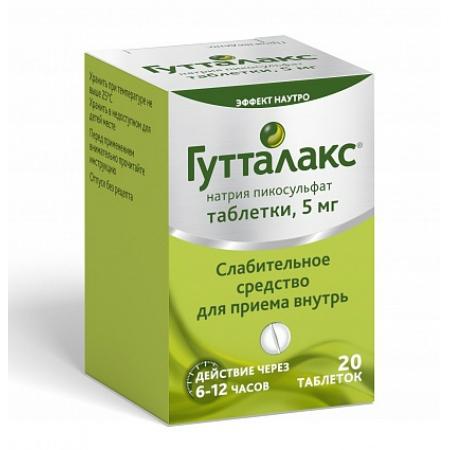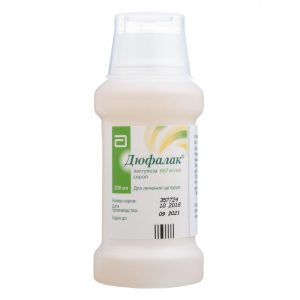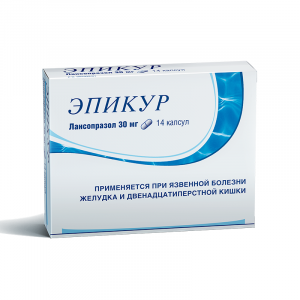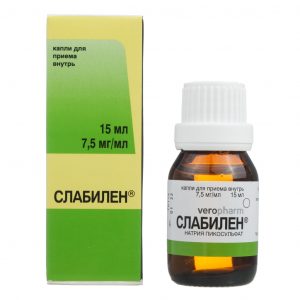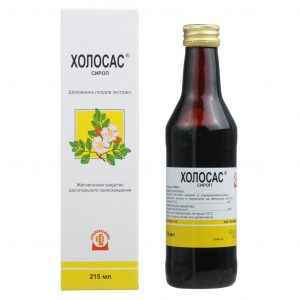Description
Latin name
Guttalax
Release form
Tablets.
packaging 20pcs packaged.
Pharmacological action
Laxative drug. The active substance – sodium picosulfate – is a laxative of the triarylmethane group.
As a local laxative, sodium picosulfate, after bacterial cleavage in the large intestine, has a stimulating effect on the mucosa of the large intestine, increasing peristalsis, and promotes the accumulation of water and electrolytes in the large intestine. This leads to stimulation of the bowel movement, a decrease in evacuation time and softening of the stool.
Pharmacokinetics
After oral administration of sodium, picosulfate passes unchanged through the stomach and small intestine, entering the colon. The absorption of the drug is negligible, which excludes its enterohepatic circulation.
In the colon, sodium picosulfate is cleaved to form the active metabolite, bis- (p-hydroxyphenyl) -pyridyl-2-methane. The time of development of the laxative effect of the drug is determined by the release rate of the active metabolite and is 6-12 hours.
A small part of the drug enters the systemic circulation.
There is no relationship between the laxative effect of the active metabolite and its concentration in the blood serum.
Indications
As a laxative in the following cases: constipation due to atony and hypotension of the colon (including in the elderly, in bedridden patients, after surgery, after childbirth and during lactation)
constipation caused by taking medications
means for regulating stool for hemorrhoids, proctitis, anal fissures (to soften the stool consistency)
gallbladder disease, irritable bowel syndrome with a predominance of constipation
constipation due to intestinal dysbiosis, dietary disorders.
Contraindications
intestinal obstruction
obstructive bowel disease
acute diseases of the abdominal cavity, including appendicitis
acute inflammatory bowel disease
severe pain in the abdomen accompanied by nausea and vomiting, which may be a sign of the aforementioned severe conditions
severe dehydration
rare hereditary disorders such as galactose intolerance, for example, galactosemia, lactase deficiency, glucose-galactose malabsorption
children under 4 years of age
hypersensitivity to the drug or its components.
Use during pregnancy and lactation
During the long experience of using the drug, no adverse events were detected during pregnancy. However, due to the lack of research, the use of Guttalax during pregnancy is recommended only in cases where the potential benefit to the mother outweighs the potential risk to the fetus. During pregnancy, the drug can be used only after consulting a specialist.
The active metabolite and its glucuronides are not excreted in breast milk. Thus, the drug can be used during breastfeeding.
Studies on the effect of the drug on fertility have not been conducted. In preclinical studies, teratogenic effects on reproduction were not detected.
Composition
1 tab.
sodium picosulfate monohydrate 5.187 mg,
? which corresponds to the content of sodium picosulfate 5 mg
Excipients: lactose monohydrate – 71 mg, corn starch – 41.5 mg, colloidal silicon dioxide – 1.7 mg, hydrolyzed potato starch – 0.3 mg, magnesium mg
Dosage and administration
Take orally. Tablets should be washed down with a sufficient amount of liquid.
Adults and children over 10 years of age are prescribed 1-2 tablets. (5-10 mg).
Children aged 4-10 years are prescribed 1 / 2-1 tablets. (2.5-5 mg).
To obtain a laxative effect in the morning, you should take the drug the night before.
Side effects of
From the gastrointestinal tract: discomfort, nausea, vomiting, cramping and pain in the abdomen, diarrhea.
From the nervous system: dizziness and fainting. Dizziness and fainting after taking the drug appear to be associated with a vasovagal response (for example, tension during bowel movements, cramping in the abdomen).
On the part of the immune system: hypersensitivity reactions, including angioedema and skin reactions.
Drug Interaction
Diuretics or glucocorticosteroids increase the risk of electrolyte balance (hypokalemia) when taken at high doses.
An electrolyte balance disorder can increase sensitivity to cardiac glycosides.
The combined use of the drug and antibiotics can reduce the debilitating effect of the drug.
Overdose
Symptoms
Diarrhea, dehydration, BP reduction, water-electrolyte balance disorder, hypokalemia, convulsions are possible when taken in high doses.
In addition, there are reports of cases of ischemia of the large intestine muscles associated with the administration of the drug at doses significantly higher than those recommended for the usual treatment of constipation.
The drug Guttalax, like other laxatives, in chronic overdose can lead to chronic diarrhea, abdominal pain, hypokalemia, secondary hyperaldosteronism, urolithiasis. Due to chronic laxative abuse, renal tubule damage, metabolic alkalosis, and muscle weakness associated with hypokalemia may develop.
Treatment
To reduce the absorption of the drug after ingestion, you can cause vomiting or gastric lavage. Fluid replenishment and electrolyte balance correction may be required as well as antispasmodics.
Storage conditions
The drug should be stored at a temperature not exceeding 25 ° C, out of the reach of children.
Expiration
3 years.
Deystvuyuschee substances
Sodium pikosulfat
dosage form
dosage form
tablets
Beringer Ingelyhaym, Austria
